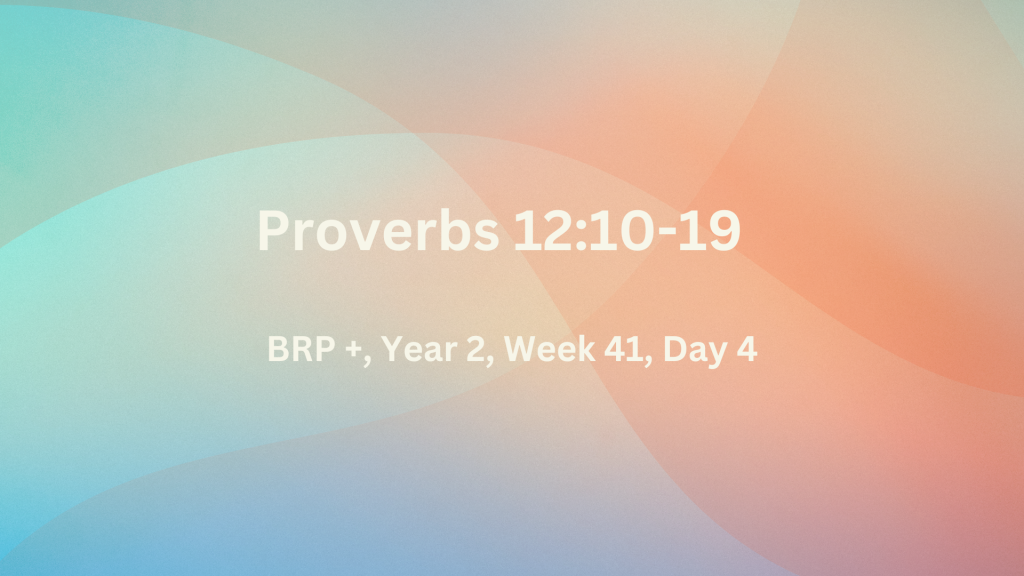Proverbs 12:10-19
Q.1. Is animal cruelty acceptable? Why should we work diligently? What is the benefit of being wise about what we hear and say? – (Prov.12:10-19)
God made man in His own likeness. Just as God cares for all His creatures, humankind are to rule over and care for the fish of the sea, the birds of the air, and the cattle in the field, – the Lord God took the man and put him in the garden of Eden to cultivate it and keep it (Gen.2:15 c.f. Gen.1:26; Ps.8:5-8; 104:10-30). Though the wicked may be cruel – a righteous man has regard for the life of his animal (Prov.12:10). Domestic animals are usually defenseless, and therefore easily mistreated. A righteous man will treat animals kindly. Israel lived a rural existence in the Promised Land, so it was very wise to care for their animals properly. We should not be content with spending our time in worthless or wicked pursuits. Working for gain will provide an adequate return (see Prov.12:11-12). We should be careful about what we listen to, because people do not always speak the truth and may deceive us – An evil man is ensnared by his lips, but the righteous will escape from trouble (Prov.12:13 c.f. Prov.12:16-19). Not only does – a wise man listen to counsel … but – he who speaks truth tells what is right (Prov.12:15 & 17).
Q.2. Why should we avoid questionable gain? What makes a fool foolish? What damage results from rash or deceitful speech? – (Prov.12:10-19)
The pursuit of questionable gain is senseless, and it is wrong in God’s eyes (see Prov.12:11-12). A fool will be right in his own eyes and will not listen to wise advice (see Prov.12:15). We must learn to restrain our impulses such as anger and rash speech (see Prov.12:16 & 18). It pays to always tell the truth because – truthful lips will be established forever (Prov.12:19). Remember that Jesus warned – every careless word that people speak, they shall give an account for it in the day of judgment. For by your words you will be justified, and by your words you will be condemned (Mt.12:36-37).

